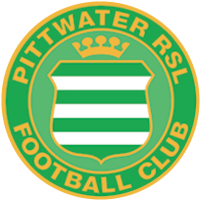Code of Conduct
Code of Conduct – Pittwater RSL FC
Players
• Play by the rules
• Referees decision is final
• Control your temper
• Verbal abuse of players or officials, deliberately distracting or provoking an opponent, is not an acceptable or permitted behaviour
• Be willing to train and prepare for the game. Preparation helps prevent injury and increase level of enjoyment.
• Play only when you are fully fit. To play with an injury will handicap your team and you may be exposed to the risk of serious, lifelong injury.
• Work equally hard for yourself and your team, your team’s performance will benefit, and so will you.
• Be a good sport
• Treat all in involved in Football as you would like to be treated
• Cooperate with your coach, manager, team mates, opponents and referees.
• Be modest in success and generous in defeat.
• Play for your own enjoyment and not for the pleasure of parents and coaches
• Respect rights, dignity and worth of all participants regardless of their gender, ability, cultural background or religion.
Parents & Spectators
• Do not force an unwilling child to participate in sport.
• Focus on the child’s effort, performance and enjoyment rather than winning the game.
• Encourage your child always to play within the rules of the game and respect the referees decision.
• Encourage respect for your team opponent, without them there would be no game.
• Encourage your child to work towards skill improvement and good sportsmanship. Never ridicule your child for making a mistake or losing a game.
• Remember that children learn best from example. Applaud good efforts for each team. Congratulate good performance and skillful plays by all participants regardless of the games outcome.
• Do not publicly question the official’s judgement or their honesty.
• Support all efforts to remove verbal or physical abuse from sporting activities.
• Show appreciation for volunteer coaches, managers, officials and administrators. Without them, your child could not participate.
• Respect rights, dignity and worth of all participants regardless of their gender, ability, cultural background or religion.
Coaches & Managers
• Remember that people participate for pleasure and winning is only part of it.
• Never ridicule or yell at players for making a mistake or not winning
• Operate within the laws and spirit of the game at all times and teach your players to do the same.
• Display control and professionalism to all involved in the sport.
• Be responsible for the sportsmanship and actions of your players before, during and after the game.
• Refrain from any form of personal abuse or unnecessary physical contact with the players in your care.
• Show concern and caution towards sick or injured players.
• Avoid overplay of talented players and understand that the average players need and deserve equal time.
• Do not unnecessarily borrow players from other teams just to win a game, playing preference should be given to your team.
• Do not abuse, threaten or intimidate a referee, coach, manager or other match officials, whether on or off the field.
• Respect the rights, dignity and worth of every participant.
• Do no use bad language nor harass players, officials, spectators or other coaches
• Obtain appropriate qualifications and keep up to date with the latest coaching practices and the principals of growth and development of younger players.
• Do not arrive at a venue intoxicated or drink alcohol at Sub Junior & Youth matches.
• Do not enter the field of play without the referee’s permission.
• Control the behaviour of the parents and spectators of your team in the vicinity of the ground before and after the game.
• Report breeches regarding codes of conduct to the age coordinator.
Administrators & Officials
• Create pathways for young players to participate in football not just as a player but also as a coach, referee, or administrator.
• Help coaches and officials highlight appropriate behaviour and skill development, and help improve the standards of coaching and officiating.
• Encourage Players, Parents, Coaches, Managers to read and follow the codes of conduct.
• Think before you speak. Your behaviour and comments reflect on your club and should be positive and supportive. Be consistent and objective when making decisions.
• Condemn unsporting behaviour and promote respect for all opponents.
• Make it clear that abusing young people in any way is unacceptable and will result in disciplinary action.
• Respect rights, dignity and worth of all participants regardless of their gender, ability, cultural background or religion.

